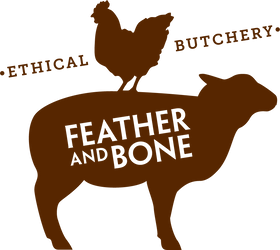'It should cost money, it's a life.'
"I don't believe in vegetarians,' Armando said. 'Why boycott the industry? Just buy something better. It should cost money. It's a life."
That's a rather provocative way to start the week off and might possibly come across as just a tad self-serving but if you've got five minutes to read the article from which that quote comes I'm sure you'll be as charmed as we were.
It's a lovely piece by Daisy Freund published last month in The Atlantic. It's about Andalucian jamon Iberico and the adverse affects of stress on meat production, both in terms of meat quality as well as the increasing evidence that the natural hormones produced by highly stressed animals are potentially as bad for you as the artificial growth hormones routinely administered in factory farms. Thanks very much to the customer who sent us this link.
How animal welfare leads to better meat: A lesson from Spain
With the quote above, Armando has now superceded Hugh Fearnley-Whittingstall as our Feather and Bone idol and we've erected a little alter at the butchery in his honour. Who would have thought that an Andalucian pig farmer could so eloquently capture our Feather and Bone philosophy in a few short sentences.
"It should cost money. It's a life."
Sheer poetry....
However, for the record, while we wholeheartedly agree with Armando's sentiments, we also bear vegetarians no ill will and firmly believe that the current consumption of grain-fed meat in the Western world is unsustainable. Imagine if all that grain went to feeding the 925 million or so humans who went hungry last year?
That, of course, is a huge subject with many complex angles that we don't pretend to fully understand but, if you're at all interested in understanding what it means to eat meat today we recommend reading 'Meat: A Benign Extravagance' by Simon Fairlie. John Newton reviewed it a month or so ago and we're half way through it now.
It's a revelation - a refreshingly impartial, gutsy unpacking of all the hyperbole and politically-skewed data about meat production today and it's a fantastic resource for those of us who don't have the time to trawl through cross-checking data and facts every time we hear someone make one of those dramatic, seductive claims.
For example, the next time you hear someone confidently stating that it takes 100,000 litres of water to produce every 1 kg of beef consumed, consider Simon Fairlie's deconstruction of this fact. If true, it would mean that a 16 month-old steer would have to imbibe 25,000 litres of water on each of the 500 days of it's life which, as any farmer will tell you, is physically impossible.
The only way to arrive at this figure is if the steer was eating irrigated grain for the majority of its life - in other words, the figure takes into account all the water used in irrigating a crop of grain grown specifically to feed animals instead of humans. They do this in places like California where the dry climate necessitates irrigation to produce the volumes of grain required.
So this terrifying statistic might be true for a small percentage of the beef consumed by the west.
But bandying it about without any explanation or qualification as though it's a blanket truth that applies to all beef consumed is clearly irresponsible and generally done with the specific intention of scaring the bejesus out of those of us who continue to believe that it's possible to be a caring carnivore.
Right, enough of all that carry-on, what's for dinner this week???





Leave a comment